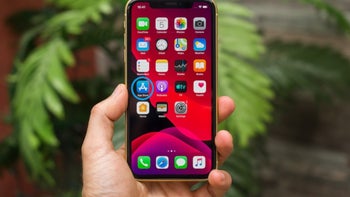Apple could soon be investigated by the DOJ and the states for antitrust violations

As you probably know by now, Apple grabs a 30% cut of in-app payments made through the App Store. That includes subscriptions although, after the first year, Apple's cut is lowered to 15%. Developers call this the "Apple Tax" and regulatory agencies have been sitting up and taking notice of what could be anti-competitive behavior on the part of Apple. Now we know exactly what you're thinking. Doesn't Google also take 30% of in-app payments? Why isn't it being considered a monopoly? The answer is quite simple.
Apple faces antitrust probes by the DOJ and the states
Because Google allows Android users to install apps from third-party app stores (like the Amazon Appstore), Google is not forcing those with an Android-powered device to use the Google Play Store. Apple's walled garden does not allow iOS users to install apps from a third-party app storefront which could result in antitrust charges against Apple. Last week, the European Commission (EC) announced two investigations against Apple; one will "assess whether Apple's rules for app developers on the distribution of apps via the App Store violate EU competition rule." In Europe, the main issue is whether an app like Spotify is unable to compete fairly with Apple Music. The second investigation revolves around Apple's mobile payment service Apple Pay.

Apple faces antitrust probes in the U.S. and Europe
Outside of the App Store, Spotify charges the same price as Apple Music. That is $9.99 a month for individuals and $14.99 per month for a family subscription that consists of up to six members. But in the App Store, Spotify raises its prices by 30% to make up for the Apple Tax and that gives Apple Music an advantage over its competitor when it comes to pricing. However, those higher prices are for renewals only since Spotify won't allow new subscribers to pay through Apple's in-app payment platform. And today Politico is reporting that the Justice Department (DOJ) and a group of state attorneys general are in the process of talking about a possible antitrust investigation against Apple in the U.S. A trio of sources close to the situation say that the Justice Department and the state AGs have talked with several companies that are not pleased with the way that Apple controls the App Store.
Gene Kimmelman, who worked in the DOJ's Antitrust Division under President Obama, said that Apple's growing share of mobile screens in the U.S. could play an important role in determining whether Apple is sued. Including tablets, the company has 58% of the U.S. smartphone and tablet market in the U.S. according to comScore. "It’s one thing to structure your services in a restrictive way or use exclusive contracts when you’re small," said Kimmelman. "But the bigger you become, the more dominant you become in a market, the more likely those types of restrictions — unless they are absolutely essential to benefit consumers — will be viewed skeptically as harmful to competition."
Apple doesn't allow developers to suggest that consumers can save money by paying for an app directly from the developer
One issue that might require DOJ action is the uneven application of the "Apple Tax" on apps in the App Store. For example, Apple doesn't take a 30% cut on apps like e-commerce platform Amazon, delivery services like Uber Eats, and apps that allow users to reserve a booking such as Airbnb. Apps that deliver magazines, newspapers, music, video, VoIP and cloud storage do not have to use Apple's in-app payment system to ring up consumer payments; all other apps offering digital services and goods are forced to use Apple's App Store payment platform which results in Apple receiving its 30% cut. This group includes apps that compete with a title developed by Apple itself. And Apple does not allow developers to note in the App Store that users might be charged less for an app if they pay the developer directly.
Developers are beginning to raise more of a stink than ever. One Apple executive who helped design and run the App Store from 2009 to 2016, Phillip Shoemaker, said, "In-app purchase is broken. As Apple is entering into more and more of these areas and putting out of business more developers, they really have got to think differently."
Last week, Microsoft President Brad Smith noted that app stores are more dominant these days than Microsoft's Windows operating system was 20 years ago when the DOJ sued Microsoft and accused it of being a monopoly. Smith said, "I do believe the time has come ... for a much more focused conversation about the nature of app stores. They impose requirements that increasingly say there's only one way to get onto our platform, and that is to go through the gate that we ourselves have created. In some cases, they create a very high price or toll."










Things that are NOT allowed: